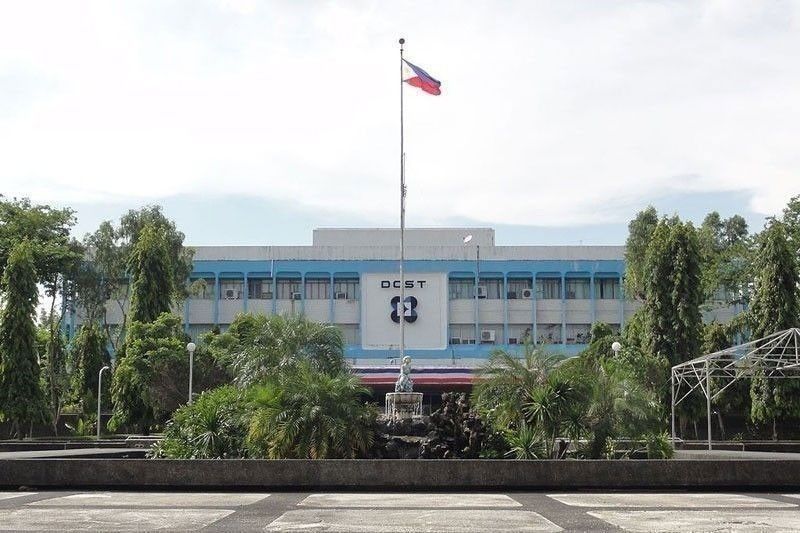DOST bullish of smart and sustainable communities transformation after LGUs get approval

MANILA, Philippines — The Department of Science and Technology (DOST) on Monday announced that no local government unit (LGU) has been disapproved in the assessment for the Smart and Sustainable Communities Program.
“So far, so good. We have not disapproved of anyone yet because, in the conceptualization and consultation process, we immediately saw their political will,” DOST Undersecretary Sancho Mabborang said in a mix of English and Filipino.
Mabborang did not specify the LGUs which got the stamp of approval. However, in May, more than 80 LGUs expressed interest in the program.
The program aims to empower local government units (LGUs) in developing 80 technologically innovative communities, producing one million jobs in science and technology and support 500 micro, small and medium-sized enterprises (MSMEs) in adopting advanced technologies by 2028.
Smart and sustainable communities, according to DOST Secretary Renato Umali Solidum Jr., are ideally open, collaborative, citizen-centric and digitally transformed. They use information and communication technologies (ICTs) to address localized issues and improve quality of life.
To ensure a smooth and tightly-knit collaboration with stakeholders, DOST also formalized its partnership with the Department of Interior and Local Government (DILG), the Department of Information and Communications Technology, and the Development Academy of the Philippines (DAP).
The collaboration is in accordance with the 2030 Agenda for Sustainable Development, the ASEAN Smart Cities Framework and the Philippine Development Plan.
What each agency will do
The program is primarily composed of agencies in charge of spearheading operations, formulating step-by-step processes, and holding potential stakeholders such as LGUs accountable.
In leading the program, DOST is working with regional directors in assessing the technological wants and needs of communities nationwide. Other duties involve ensuring funds and providing the technologies demanded.
“To engage our potential stakeholders, we’ll indicate the willingness, raise funds, but we’ll start first with simple technology,” Solidum said in Filipino. “We’ll start with the technologies that the LGU wants and needs.”
Meanwhile, DAP is responsible for providing a comprehensive framework that LGUs may use as a blueprint for the transition to smart and sustainable communities. This framework includes the policy, process, and human capability levels of innovation.
“We feel that there ought to be a parallel process that we can show them so they will be able to transform themselves into a more agile and innovative LGU,” DAP President Engelbert Caronan Jr. said in a mix of English and Filipino.
Assessing LGUs is the first of the nine-step process that is based on the standards of the International Standards Organization for a smart community, Caronan added. This, however, is “only a recommendation” as LGUs have the autonomy to set their own standards.
Following this involves agencies engaging with stakeholders and the national government “to participate in providing appropriate solutions.”
“If the LGUs have needs, technologies or solutions that the national government has not provided yet, this is the time we engage our start-ups and MSMEs,” Caronan said in a mix of English and Filipino.
All government projects cannot simply be downloaded to an LGU. Agencies will still need to seek the consent of the LGU before projects can be implemented, DILG Assistant Secretary Romeo Benitez said.
This is also where the DILG enters. It monitors the operations of LGUs, keeping them “within the mandate of powers and obligations” in fulfilling the objectives of a smart and sustainable community.
Besides holding offices and agencies in the program accountable, Benitez said the DILG will provide incentives such as cash grants and annual awards to entice LGUs to participate in the Smart and Sustainable Communities Program.
Not the first smart city
In 2015, DOST declared Cauayan City, Isabela as the first smart city for being the first to implement the agency’s “Juan Time” campaign to synchronize time in offices and public establishments.
The city also launched its first electric-powered vehicle charging station, including electric tricycles in 2017, and adopted the Hybrid Electric Road Train in 2019.
Other smart cities include Metro Manila, Metro Clark, Metro Cebu and Metro Davao. These cities have established e-government services and transactions, intelligent transport, traffic systems and security.
Among the technologies that DOST also developed are contactless apprehension for traffic violations (CATCHALL), solar-powered water pumping, purification and filtration systems, rainwater collector harvester and water distillation.
“We have a lot of available technologies which can be applied, but as to what will be applied will be dependent on the assessment and the desire of the local government – what they want addressed,” Solidum said.
Solidum added that no one will deny the program’s implementation if people hope for development in their communities.
Beginning the five-year pilot program, Caronan found that LGUs “instinctively see the benefit” of becoming smart communities.
Although the goal is to establish 80 smart communities, the “overwhelming” number of requests the program received so far has led DOST and its partner agencies to believe the program can do more in the next five years. —Intern, Dominique Nicole Flores
- Latest
- Trending






























